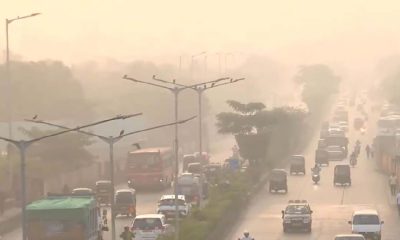National News
Supreme Court Directs Governments To Provide 30 Lakh Relief To Families Of Manual Scavengers; Eradicate Practice
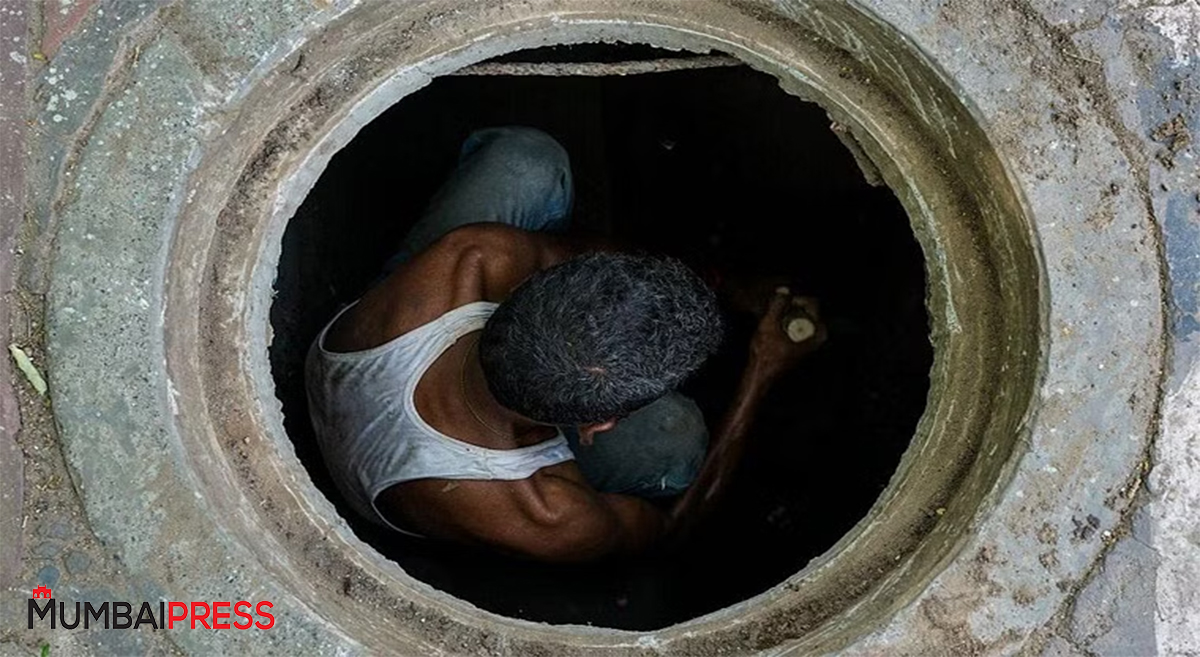
Observing that manual scavengers have lived in bondage, systematically trapped in inhuman conditions for a long time, the Supreme Court on Friday asked the Centre and state governments to completely eradicate manual scavenging across the country.
Passing a slew of directions for the benefit of people involved in manual scavenging, the court asked the central and state governments to pay Rs 30 lakh as compensation to the next of kin of those who die while cleaning sewers.
Battle for freedom
“Ours is a battle not for wealth of power. It is a battle for freedom. It is a battle for reclamation of human personality,” Justice S Ravindra Bhat quoted B R Ambedkar as he along with Justice Aravind Kumar pronounced the verdict on a PIL against manual scavenging.
Enhancing the compensation in cases of sewer deaths and injuries, the top court said those who suffer permanent disabilities while cleaning sewers will be paid Rs 20 lakh as minimum compensation, and for other injuries a compensation up to Rs 10 lakh can be paid to the victims.
Union & state governments must ensure eradication
“The Union and the state governments must ensure that manual scavenging is completely eradicated,” the bench said. The bench issued 14 directions to the Union and state governments for effective implementation of the Prohibition of Employment as Manual Scavengers and their Rehabilitation Act, 2013.
Justice Bhat, who read out the verdict, said the authorities needed to take measures for the rehabilitation of the victims and their families. The kith and kin of the victims be provided scholarships and imparted skill development training.
“If you have to be truly equal in all respects, the commitment that Constitution makers gave to all sections of society by entrenching emancipatory provisions such as Articles 15(2)…, each of us must live up to its promise. The Union and States are duty bound to ensure that the practice of manual scavenging is completely eradicated,” Justice Bhat said.
Article 15(2) of the Constitution says the State shall not discriminate against any citizen on grounds only of religion, race, caste, sex and place of birth.
We owe this to those who have remained unseen
“Each of us owe to this large segment of the population, who have remained unseen, unheard and muted, in bondage systematically trapped in inhuman conditions. The conferment of entitlements and placement of obligations upon the Union and States through the express prohibitions in the Constitution and provisions of the 2013 Act mean that they are obliged to implement the provisions in the letter and spirit,” he said.
Justice Bhat said a duty is cast on all to realise “true fraternity”. “It is not without reason that our Constitution has placed great emphasis on the value of dignity and fraternity. But for these two, all other liberties are chimera. All of us today, who proudly bask in the achievements of our republic, have to awake and arise so that the darkness which has been the fate of generations of our people is dispelled…,” he said.
Issuing a slew of directions, which were not read out, the bench said government agencies must coordinate to ensure that such incidents do not occur and high courts are not precluded from monitoring the cases related to sewer deaths.
Further monitoring on February 1, 2024.
The bench posted the PIL for further monitoring on February 1, 2024.
As many as 347 people died while cleaning sewers and septic tanks in India in the last five years with Uttar Pradesh, Tamil Nadu and Delhi accounting for 40 per cent of these deaths, according to government data cited in the Lok Sabha in July 2022.
Business
Union Cabinet approves Pune Metro Rail Project Phase 2 with Rs 9,857 crore outlay
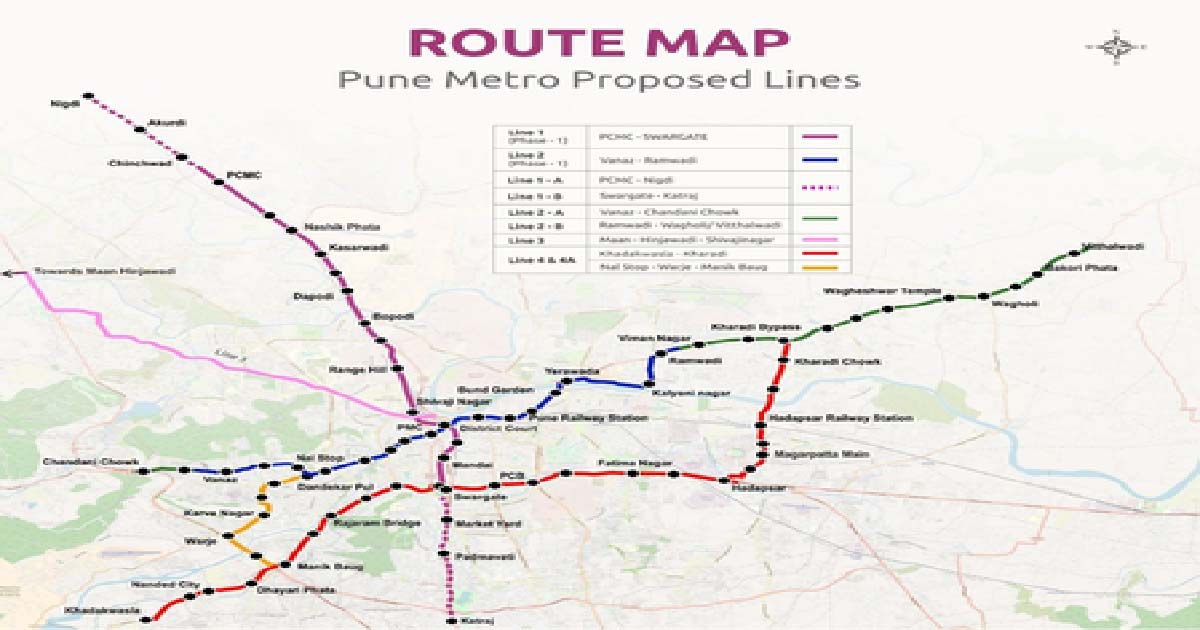
New Delhi, Nov 26: In a major boost for the public transport network in Pune, the Union Cabinet, chaired by Prime Minister Narendra Modi, on Wednesday approved Line 4 (Kharadi–Hadapsar–Swargate–Khadakwasla) and Line 4A (Nal Stop–Warje–Manik Baug) with Rs 9,857.85 crore outlay under Phase 2 of the Pune Metro Rail Project.
According to the Cabinet, this is the second major project approved under Phase-2, following the sanction of Line 2A (Vanaz–Chandani Chowk) and Line 2B (Ramwadi–Wagholi/Vitthalwadi). With this latest approval, Pune Metro’s network will expand beyond the 100-km milestone, a significant step in the city’s journey towards a modern, integrated, and sustainable urban transit system.
Spanning 31.636 km with 28 elevated stations, Line 4 and 4A will connect IT hubs, commercial zones, educational institutions, and residential clusters across East, South, and West Pune.
The project will be completed within five years at an estimated cost of Rs 9,857.85 crore, to be jointly funded by the Centre, the Maharashtra government, and external bilateral/multilateral funding agencies.
These lines are a vital part of Pune’s Comprehensive Mobility Plan (CMP) and will seamlessly integrate with operational and sanctioned corridors at Kharadi Bypass and Nal Stop (Line 2), and Swargate (Line 1).
“They will also provide an interchange at Hadapsar Railway Station and connect with future corridors towards Loni Kalbhor and Saswad Road, ensuring smooth multimodal connectivity across metro, rail, and bus networks,” a Cabinet communique said.
The project will be implemented by the Maharashtra Metro Rail Corporation Limited (Maha-Metro), which will carry out all civil, electrical, mechanical, and systems works.
Pre-construction activities such as topographical surveys and detailed design consultancy are already underway, according to the Cabinet.
According to projections, the daily ridership on Line 4 and 4A combined is expected to be 4.09 lakh in 2028, rising to nearly 7 lakh in 2038, 9.63 lakh in 2048, and over 11.7 lakh in 2058.
Of this, the Kharadi–Khadakwasla corridor will account for 3.23 lakh passengers in 2028, growing to 9.33 lakh by 2058, while the Nal Stop–Warje–Manik Baug spur line will rise from 85,555 to 2.41 lakh passengers over the same period.
These projections highlight the significant growth in ridership expected on Line 4 and 4A over the coming decades.
With Line 4 and 4A, Pune will not just get more metro tracks but will also gain a faster, greener, and more connected future. These corridors are designed to give back hours of commuting time, reduce traffic chaos, and provide citizens with a safe, reliable, and affordable alternative.
Crime
Red Fort blast: Accused Soyab sent to 10-day NIA custody
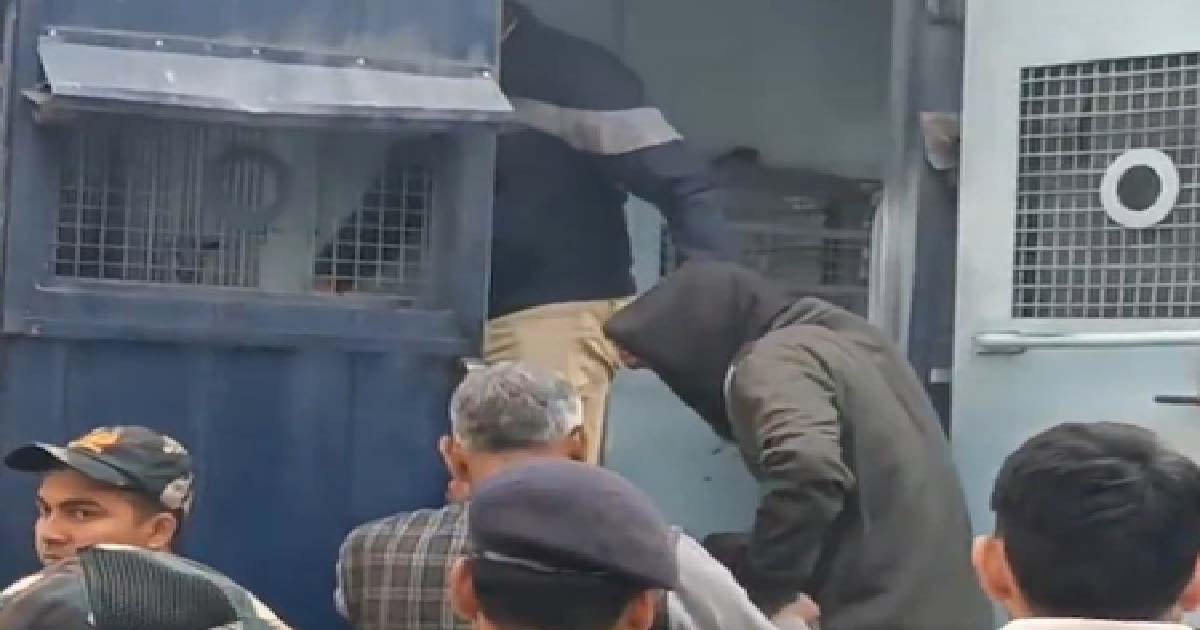
New Delhi, Nov 26: The National Investigation Agency (NIA) was granted a 10-day custody of Soyab, the accused in the Delhi terror blast case, who was arrested in Faridabad earlier on Wednesday.
Soyab was presented before the Patiala House Court, which approved his transfer to NIA custody for 10 days.
Additionally, another key accused, Aamir Rashid Ali, had his NIA custody expiring on the same day. He was also presented before the court, which extended his custody by an additional seven days.
The NIA, earlier in the day, arrested Soyab, a resident of Faridabad’s Dhoj, for harbouring terrorist Dr Umar Muhammad, also known as Umar Un Nabi, immediately before the Delhi terror bomb blast.
Soyab is the seventh person to be arrested in connection with the case.
According to the NIA, he not only harboured Umar before the attack but also provided logistical support crucial to the execution of the November 10 car bombing near the Red Fort that killed several people and left many others injured.
Before this arrest, the NIA had taken six of Umar’s close aides into custody as part of ongoing investigations under case number RC-21/2025/NIA/DLI.
The NIA stated that it is actively pursuing multiple leads related to the suicide bombing and has been conducting coordinated searches across several states with the assistance of local police forces. The agency said its objective is to identify and apprehend all members linked to the larger terror network responsible for the attack.
Meanwhile, ongoing investigations have revealed chilling details about terrorist Umar’s methods and preparations.
According to interrogation inputs from arrested members of the terror module, Umar maintained what investigators describe as a “mobile workstation” — a large suitcase containing bomb-making tools, chemical compounds and containers. He carried it with him wherever he went.
Umar, a medical professional associated with Al-Falah University in Faridabad, reportedly conducted chemical tests in his room on campus before creating the final Improvised Explosive Device (IED).
One of the arrested suspects, Dr Muzamil Shakeel, also affiliated with the same university, confirmed to interrogators that Umar experimented with substances that were later used in the blast.
Business
Assam saw major drop in child marriage cases under BJP govt: CM Sarma
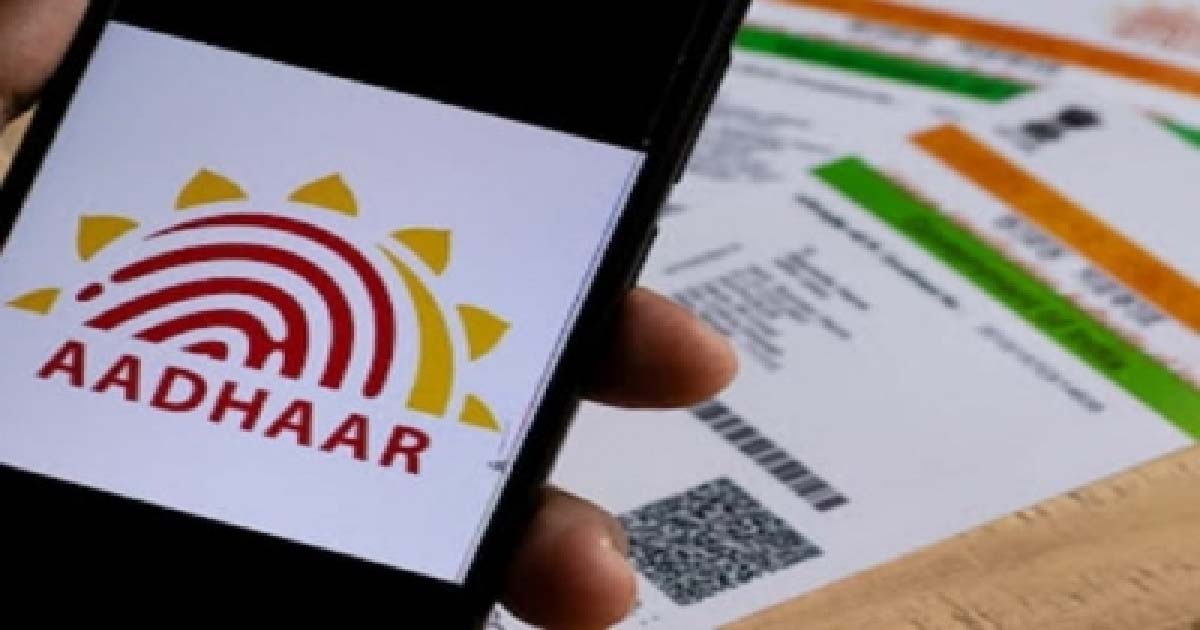
Guwahati, Nov 26: Assam Chief Minister Himanta Biswa Sarma on Wednesday underscored a “major turnaround” in the state’s battle against child marriage, saying a combination of stringent enforcement and systemic reforms has led to significant declines in the underage marriages and boosted legal accountability.
CM Sarma claimed that according to NFHS‑4 (2015-16) data, 31.8 per cent of women in Assam aged 20–24 were married before turning 18 – a rate that exceeded the national average.
Moreover, district-level fact sheets had recorded alarming prevalence in districts such as Dhubri, South Salmara, Barpeta and Nagaon, as high as 40–55 per cent.
However, the state now claims a decisive shift. Between 2023 and 2024 alone, more than 8,600 arrests were made in coordinated crackdowns under both the Protection of Children from Sexual Offences Act (POCSO) and the Prohibition of Child Marriage Act (PCMA).
According to the Chief Minister, in 2022 the number of cases registered stood at 224, sharply up from just 149 in 2021, indicating a steep rise in enforcement.
CM Sarma said, “Beyond arrests, Assam has formed district-level task forces, headed by superintendents of police, to track and intercept impending child marriages. Community-level workers – including ASHAs, Anganwadi staff and schoolteachers – are now required to report suspected cases in real time.”
“Several districts have also reportedly established digital databases and child-protection tracking mechanisms,” he added.
The CM claimed that these measures have borne fruit: In hotspot districts, the incidence of child marriage fell by 8–17 per cent within a year, and more than 3,000 planned child marriages were prevented in 2023–24 alone.
Notably, the Assam government’s recent actions – from sustained crackdowns to setting up institutional safeguards – reflect a far more aggressive stance on child marriage than seen in earlier years, when the practice was largely treated as a social issue rather than a crime.
-

 Crime3 years ago
Crime3 years agoClass 10 student jumps to death in Jaipur
-

 Maharashtra1 year ago
Maharashtra1 year agoMumbai Local Train Update: Central Railway’s New Timetable Comes Into Effect; Check Full List Of Revised Timings & Stations
-

 Maharashtra1 year ago
Maharashtra1 year agoMumbai To Go Toll-Free Tonight! Maharashtra Govt Announces Complete Toll Waiver For Light Motor Vehicles At All 5 Entry Points Of City
-

 Maharashtra1 year ago
Maharashtra1 year agoFalse photo of Imtiaz Jaleel’s rally, exposing the fooling conspiracy
-

 National News1 year ago
National News1 year agoMinistry of Railways rolls out Special Drive 4.0 with focus on digitisation, cleanliness, inclusiveness and grievance redressal
-

 Maharashtra1 year ago
Maharashtra1 year agoMaharashtra Elections 2024: Mumbai Metro & BEST Services Extended Till Midnight On Voting Day
-

 National News1 year ago
National News1 year agoJ&K: 4 Jawans Killed, 28 Injured After Bus Carrying BSF Personnel For Poll Duty Falls Into Gorge In Budgam; Terrifying Visuals Surface
-

 Crime1 year ago
Crime1 year agoBaba Siddique Murder: Mumbai Police Unable To Get Lawrence Bishnoi Custody Due To Home Ministry Order, Says Report





